News
FG Denies Chibok Girls Ransom Report
Nigeria’s information minister has denied media reports that the Islamist militant group Boko Haram is demanding $50 million from the government as ransom before releasing the abducted Chibok schoolgirls.
President Muhammadu Buhari promised to do all he can to ensure the release of the school girls, following his recent meeting with parents of the abducted girls at the presidential villa in the capital, Abuja.
Information Minister Lai Mohammed said ransom reports are not new in an interview with the Voice of America.
“It appears we have several versions of this report. The one that we heard was from a source that [Boko Haram] wants to release 10 of these girls for 1 million euros,” Mohammed said.
“But the most important thing is that we’ve gone through this route before, and until and when we establish the credibility of this source and the truth behind it, the government will not be in a hurry to make a statement. However, government is using its own channels to authenticate the credibility of this source,” he said.
Mohammed said accusations that the Buhari administration appears not to be doing enough to secure the release of the more than 200 Chibok girls is not fair.
“No day passes without the issue of the kidnapped girls not being at the front burner. But these are highly security and intelligence issues, which cannot always be discussed openly,” he said. “But I can assure you that for this government, the return of these girls is what is going to bring the final closure on the Boko Haram terrorism and we are working very hard, daily on it.”
Mohammed’s remarks came after the government announced it has made significant progress in the fight against Boko Haram.
The administration said it has “technically” defeated Boko Haram. But critics say the militants continued attacks on unarmed civilians, including the use of suicide bombers, shows Boko Haram remains potent, despite the government’s reports.
“Those who say that are being very unfair to us,” Mohammed said.
“We inherited a very bad situation where the trail had gone cold, despite that every day we send out reports, we receive [information] some of them are phony some of them are just there to excoriate government.
“But the truth of the matter is that it’s not a matter that the government is taking lightly. Those who want a daily report on what we are doing, of course in security that does not happen. But we have channels of information in which we make available on a need to know basis,” he said.
Mohammed said Nigeria’s military has been able to wrestle control of territories previously under the control of the Boko Haram militants. He also said the militants have been dislodged from their fortresses, including their main operation center in the Sambisa Forest.
“What we have today is cowardly attacks on soft targets. … And Nigeria has moved on from that and we are now concentrating very much on the rehabilitation, resettlement of those who are displaced. And I think the fact that one of the most wanted persons all over the world was captured without even firing a shot last week. … I think, is evidence so far of Nigeria’s success in dealing with terrorism,” he said.
Meanwhile, the Islamic sect, Boko Haram, was said to have demanded for $50 million (about N16 billion) ransom from the Fedewral Government so as to release the over 200 schoolgirls abducted in Chibok, Borno State, exactly two years after the kidnap.
A dollar currently exchanges for N320 at the parallel market, making the total ransom demand to be N16 billion.
According to the Telegraph of the United Kingdom, the group was said to have made the demand through a secret contact it made with the government of President Muhammadu Buhari, who had repeatedly said he was ready to negotiate with the freedom of the girls who were kidnapped in April 2014.
The group’s leader, Abubakr Shekau, had previously demanded the release of his jailed comrades in exchange for the girls.
However, a deal along those lines – brokered by the Red Cross – fell through after Nigerian prison officials said that commanders on a list given to them by Boko Haram were not in their custody.
Details of the new ransom request emerged ahead of the second anniversary of the girls kidnapping on the night of April 14, 2014, when they were abducted by Boko Haram gunmen posing as soldiers.
Despite their case receiving global attention because of the celebrity-backed #bringbackourgirls campaign on social media, diplomats and sources close to the negotiations say they are no closer to knowing the girls’ whereabouts.
The Nigerian military has made significant gains against Boko Haram in the last 18 months, raiding a number of the sect’s camps in Nigeria’s vast Sambisa forest, and freeing at least 1,000 women and children taken in other mass abductions.
Yet in none of the raids have rescued prisoners or captured fighters been able to give any convincing accounts of meeting or seeing any of the Chibok girls.
That indicates they are still being kept well away from other captives, and that their kidnappers see them as having huge symbolic value as hostages – thanks partly the publicity given to them by the social media campaign.
“I think they are probably in clusters rather than all in one place, but probably not far from each other,” said Shehu Sani, a senator and civil rights activist involved in peace attempts with Boko Haram, adding: “Boko Haram knows they are a prized catch.”
One source close to Boko Haram said that around three months ago, the group sent a message saying it would exchange the girls for a ransom of N16 billion, the equivalent of around $50 million.
“The ransom demand has split the government,” said the source: “Some think it would be worth it just to resolve the Chibok situation, but others say it will simply allow Boko Haram to hire yet more insurgent recruits.”
The same source also said that a month after the ransom demand, Boko Haram had secretly passed the government a new video tape showing 15 of the kidnapped girls.
“The girls are asked what their Christian names are and what their new Muslim names are,” he said, referring to the “conversion” that Boko Haram forces Christian prisoners to undergo.
News
You Failed Nigerians, Falana Slams Power Minister
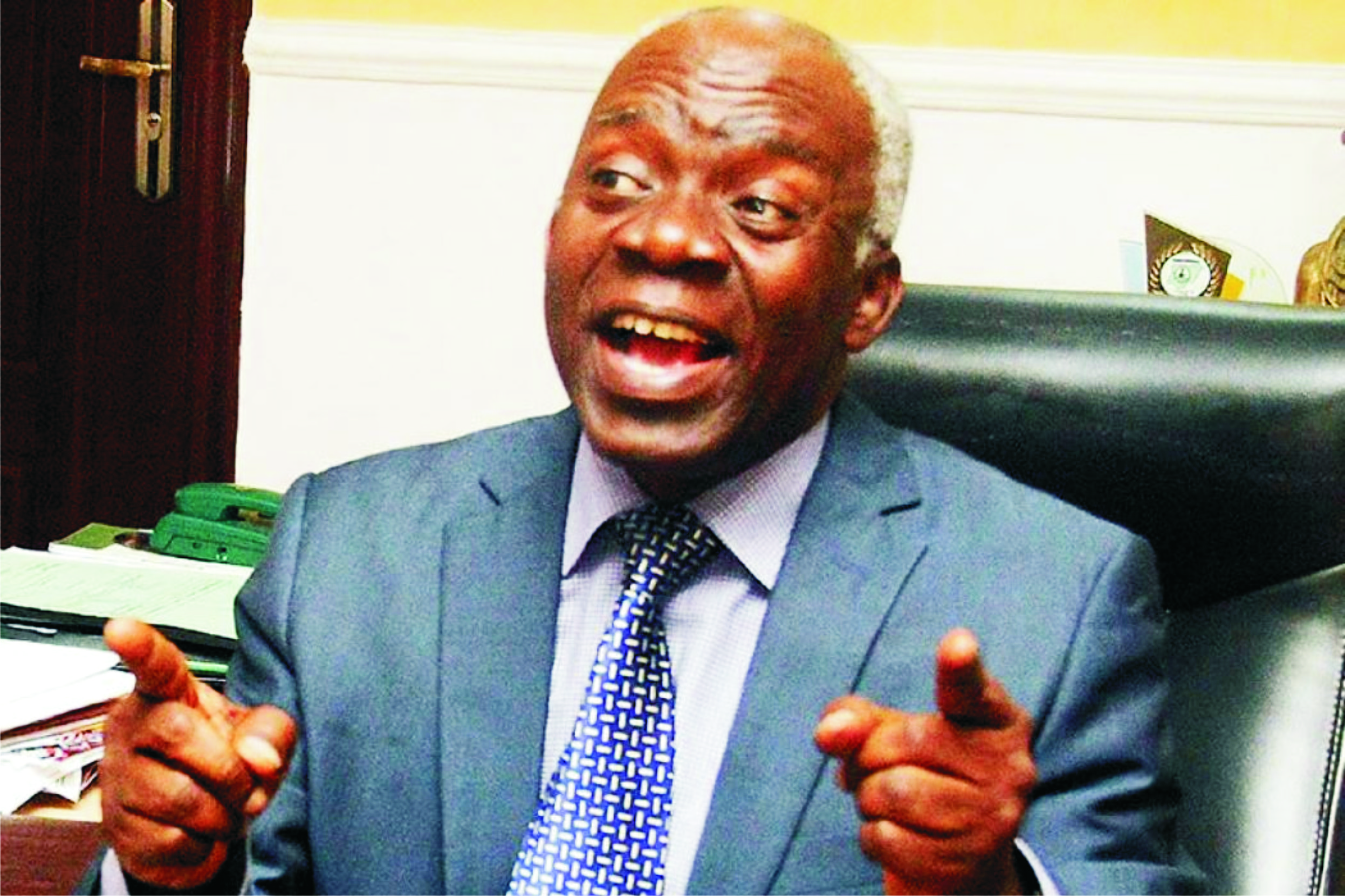
Human rights lawyer, Femi Falana, SAN, has passed a vote of ‘no confidence’ in the Federal Government, saying that the Minister of Power, Adebayo Adelabu, has failed Nigerians.
Falana was reacting to Adelabu’s appearance before the Senate to defend the increase in the electricity tariff and what Nigerians would pay on Monday.
The rights activists also claimed that the move is a policy imposed on the Nigerian government by the International Monetary Funds (IMF) and the World Bank.
Speaking on the Channels TV show on Monday night, Falana said, “The Minister of Power, Mr Adebayo Adelabu has failed to address the question of the illegality of the tariffs.
“Section 116 of the Electricity Act 2023 provides that before an increase can approved and announced, there has to be a public hearing conducted based on the request of the DISCOS to have an increase in the electricity tariffs. That was not done.
“Secondly, neither the minister nor the Nigeria Electricity Regulatory Commission has explained why the impunity that characterised the increase can be allowed.”
Falana also expressed worry over what he described as impunity on the part of the Federal Government and electricity regulatory commission.
““I have already given a notice to the commission because these guys are running Nigeria based on impunity and we can not continue like this. Whence a country claims to operate under the rule of law, all actions of the government, and all actions of individuals must comply with the provisions of relevant laws.
“Secondly, the increase was anchored on the directives of the commission that customers in Band A will have an uninterrupted electricity supply for at least 20 hours a day. That directive has been violated daily. So, on what basis can you justify the increase in the electricity tariffs”, Falana queried.
The human rights lawyer alleged that the Nigerian government is heeding an instruction given to her by the Bretton Wood institutions.
He alleged, “The Honourable Minister of Power is acting the script of the IMF and the World Bank.
“Those two agencies insisted and they continue to insist that the government of Nigeria must remove all subsidies. Fuel subsidy, electricity subsidy and what have you; all social services must be commercialised and priced beyond the reach of the majority of Nigerians.
“So, the government cannot afford to protect the interest of Nigerians where you are implementing the neoliberal policies of the Bretton Wood institutions.”
The Senior Advocate of Nigeria accused Western countries led by the United States of America of double standards.
According to him, they subsidize agriculture, energy, and fuel and offer grants and loans to indigent students while they advise the Nigerian government against doing the same for its citizens.
Following the outrage that greeted the announcement of the tariff increase, Adelabu explained that the action would not affect everyone using electricity as only Band A customers who get about 20 hours of electricity are affected by the hike.
Falana, however, insisted that neither the minister nor the National Electricity Regulatory Commission (NERC) has justified the tariff increase.
The senior lawyer said that Nigerian law gives no room for discrimination against customers by grading them in different bands.
He insisted that the government cannot ask Nigerians to pay differently for the same product even when what has been consistently served to them is darkness.
Following the outrage over the hike, Adelabu on Monday appeared at a one-day investigative hearing on the need to halt the increase in electricity tariff by eleven successor electricity distribution companies amid the biting economic situation in Nigeria.
However, Falana said that nothing will come out of the probe by the Senate.
He advised that the matter has to be taken to court so that the minister and the Attorney General of the Federation can defend the move.
News
1.4m UTME Candidates Scored Below 200 -JAMB
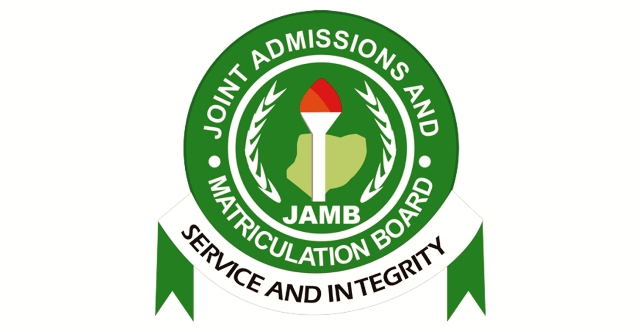
The Joint Admissions and Matriculation Board (JAMB) on Monday, released the results of the 2024 Unified Tertiary Matriculation Examination, showing that 1,402,490 candidates out of 1,842,464 failed to score 200 out of 400 marks.
The number of candidates who failed to score half of the possible marks represents 78 per cent of the candidates whose results were released by JAMB.
Giving a breakdown of the results of the 1,842,464 candidates released, the board’s Registrar, Prof. Ishaq Oloyede, noted that, “8,401 candidates scored 300 and above; 77,070 scored 250 and above; 439,974 scored 200 and above while 1,402,490 scored below 200.”
On naming the top scorers for the 2024 UTME, Oloyede said, “It is common knowledge that the Board has, at various times restated its unwillingness to publish the names of its best-performing candidates, as it considers its UTME as only a ranking examination on account of the other parameters that would constitute what would later be considered the minimum admissible score for candidates seeking admission to tertiary institutions.
“Similarly, because of the different variables adopted by respective institutions, it might be downright impossible to arrive at a single or all-encompassing set of parameters for generating a list of candidates with the highest admissible score as gaining admission remains the ultimate goal. Hence, it might be unrealistic or presumptive to say a particular candidate is the highest scorer given the fact that such a candidate may, in the final analysis, not even be admitted.
“However, owing to public demand and to avoid a repeat of the Mmesoma saga as well as provide a guide for those, who may want to award prizes to this set of high-performing candidates, the Board appeals to all concerned to always verify claims by candidates before offering such awards.”
Oloyede also noted that the results of 64,624 out of the 1,904,189, who sat the examination, were withheld by the board and would be subject to investigation.
He noted that though a total of 1,989,668 registered, a total of 80,810 candidates were absent.
“For the 2024 UTME, 1,989,668 candidates registered including those who registered at foreign centres. The Direct Entry registration is still ongoing.
“Out of a total of 1,989,668 registered candidates, 80,810 were absent. A total of 1,904,189 sat the UTME within the six days of the examination.
“The Board is today releasing the results of 1,842,464 candidates. 64,624 results are under investigation for verification, procedural investigation of candidates, Centre-based investigation and alleged examination misconduct”, he said.
Oloyede also said the Board, at the moment, conducts examination in nine foreign centres namely: Abidjan, Ivory Coast; Addis Ababa, Ethiopia; Buea, Cameroon; Cotonou, Republic of Benin; London, United Kingdom; Jeddah, Saudi Arabia; and Johannesburg, South Africa.
“The essence of this foreign component of the examination is to market our institutions to the outside world as well as ensuring that our universities reflect the universality of academic traditions, among others. The Board is, currently, fine-tuning arrangements for the conduct of the 2024 UTME in these foreign centres,” he explained.
News
Ex-CBN Director Admits Collecting $600,000 Bribe For Emefiele
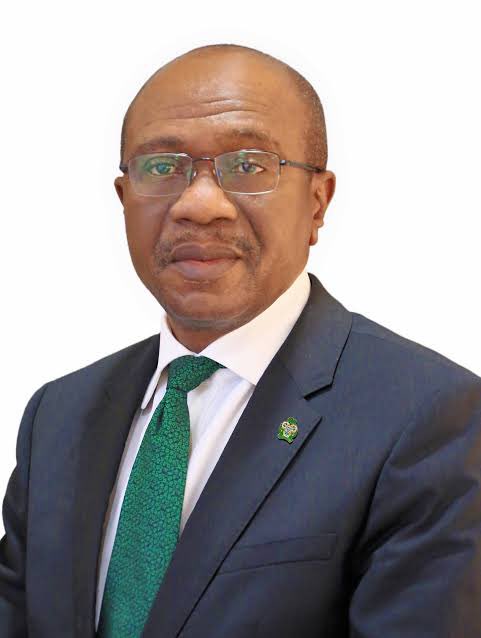
A former Director of Information Technology with the Central Bank of Nigeria, John Ayoh, has alleged that he collected on behalf of the former governor of the apex bank, Godwin Emefiele, a sum of $600,000 in two installments from contractors.
Ayoh, the second witness of the Economic and Financial Crimes Commission (EFCC), disclosed this on Monday while recounting instances where he facilitated the delivery of money to Emefiele, claiming it was for contract awards.
Under cross-examination at the Ikeja Special Offences Court in Lagos by the defence counsel, Olalekan Ojo (SAN), Ayoh admitted to facilitating the alleged bribery under pressure.
The embattled former governor of the apex bank is having many running legal battles both in Abuja and Lagos and is being tried by the EFCC at the Special Offences Court over alleged abuse of office and accepting gratification to the tune of $4.5 billion and N2.8bn.
He was arraigned on April 8, 2024, alongside his co-defendant, Henry Isioma-Omoile, on 26 counts bordering on abuse of office, accepting gratifications, corrupt demand, receiving property, and fraudulently obtaining and conferring corrupt advantage.
Emefiele’s defence, however, challenged the court’s jurisdiction over constitutional matters, urging the quashing of counts one to four and counts eight to 24 against him.
Ayoh, who was led in evidence by the EFCC prosecution counsel, Rotimi Oyedepo (SAN), said the first money he collected on Emefiele’s behalf was $400,000 which his assistant, John Adetola, came to collect at his house in Lekki, Lagos State.
He further told the court that the second bribe of $200,000 was collected at the headquarters of CBN, at the Island office.
He said the money was brought in an envelope, adding that when the delivery person, Victor, was on the bank’s premises, he contacted Emefiele, who insisted on receiving the package directly from Ayoh without involving third parties.
He said when he went to deliver the package, he saw many bank CEOs waiting to see the former apex bank governor.
When questioned if he had ever been involved in any criminal activity, he responded in the negative but admitted that he had facilitated the commission of crime unknowingly.
“I believe I did admit in my statement that I was forced to commit the crime. I don’t know the exact word I used in my statement, but I said we were all forced with tremendous pressure to bend the rules,” he said.
When asked if he opened the envelopes he collected on the two occasions and counted the money to confirm the amount, he was negative in his reply, adding that he did also write in his statement that the money was given to influence the award of contracts.
On whether the EFCC arrested him, the witness said he was invited on February 20, 2024, and returned home after he was granted bail.
Earlier, Emefiele asked the court to quash counts one to four and counts eight to 24 against him, as the court lacks the jurisdiction to try him.
Speaking through his counsel, Ojo, he said counts one to four were constitutional matters, which the court lacked the jurisdiction to determine.
In his argument, citing Sections 374 of the Administration of Criminal Justice Act and 386(2), the defence counsel told Justice Rahman Oshodi that Emefiele ought not to be arraigned before the court on constitutional grounds.
He, therefore, urged the court to resolve the objection on whether the court had the jurisdiction to try the case or not.
The second defendant’s counsel, Kazeem Gbadamosi (SAN), also relied on the submissions of Ojo.
The EFCC counsel, Oyedepo, however, objected, as he asked the court to disregard the decision of the Court of Appeal relied upon by Ojo, saying that the Court of Appeal could not set aside the decision of the Supreme Court on any matter.
Ruling on the submissions of the counsel, Justice Oshodi said he would give his decision on jurisdiction when he delivered judgment as he adjourned till May 3.
He also directed the EFCC to serve the defence proof of evidence on witness number six and his extrajudicial statement.
-
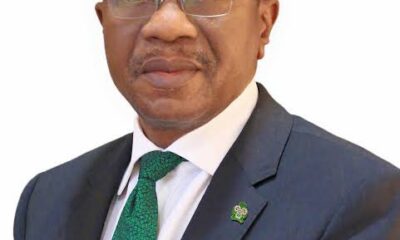
 News3 days ago
News3 days agoEx-CBN Director Admits Collecting $600,000 Bribe For Emefiele
-
Nation3 days ago
Ibom Developers Supports 160 Women with Skill Acquisition Training in Akwa Ibom
-

 News3 days ago
News3 days ago1.4m UTME Candidates Scored Below 200 -JAMB
-
News3 days ago
Gunmen Kidnap Four In Abuja
-
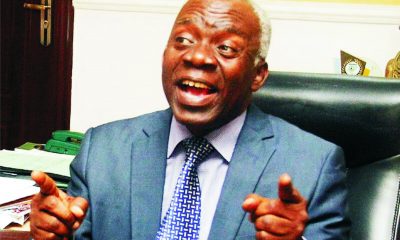
 News3 days ago
News3 days agoYou Failed Nigerians, Falana Slams Power Minister
-

 Nation3 days ago
Nation3 days agoIbom Developers Supports 160 Women with Skill Acquisition Training in Akwa Ibom
-
Niger Delta3 days ago
Fire razes 4 shops in Edo
-
News3 days ago
Reps Order NERC To Suspend Implementation Of New Electricity Tariff

